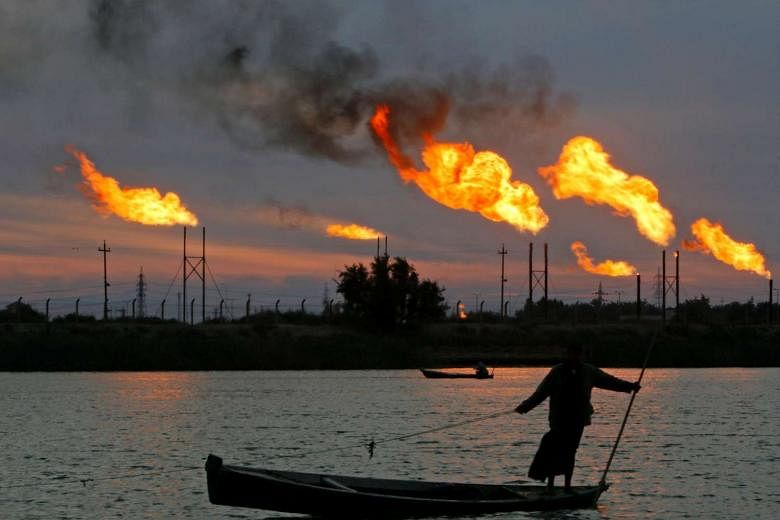BAGHDAD (NYTIMES) - US Defence Secretary James Mattis arrived in Baghdad on Monday, promising that, despite what President Donald Trump said last month, the administration would not try to seize Iraq's oil.
Nor, he said, would the administration repay Iraqis who have worked and fought side by side with American troops by excluding them from the United States - as Trump initially did with an executive order shutting the door to citizens of seven mainly Muslim countries, including Iraq. That order has been stayed by the courts and is expected to be replaced soon.
"I have not seen the new executive order," Mattis said on Sunday. "But right now, I'm assured that we will take steps to allow those who have fought alongside us to be allowed into the United States."
As for Trump's remarks during a visit to CIA headquarters last month that the United States should have "kept" Iraq's oil after the American-led invasion, and might still have a chance to do so, Mattis said that Americans were accustomed to paying for their fuel.
"We're not in Iraq to seize anybody's oil," he told reporters in Abu Dhabi before departing for Baghdad.
That Mattis, the first senior official in the Trump administration to visit Iraq, would even have to make such comments would have been unthinkable under previous administrations. But many once-unthinkable things have become par for the course under Trump, and his emissaries abroad are spending much of their time trying to reassure American allies that they need not take everything the president says seriously.
In Brussels last week, Mattis assured Nato members that, contrary to what his boss had said, the United States still valued the trans-Atlantic alliance. In Munich, he had the same message for skittish European diplomats assembled for a major annual conference on security.
Nowhere have Trump's policy pronouncements landed harder, though, than in Iraq, where about 5,000 American troops are assisting Iraqi forces in the fight against the Islamic State in Iraq and Syria (ISIS), also known as ISIL. That fight went up a gear on Sunday with the start of a major operation by the Iraqi security forces to liberate the western side of Mosul, once Iraq's second-largest city.
A former Iraqi ambassador to Washington, Lukman Faily, said last month that Iraqis were unsettled by Trump's moves, including the travel ban, and wondered whether the United States even wanted a long-term relationship with Iraq.
Over the weekend, airplanes carpeted the ground in western Mosul with leaflets appealing directly to ISIS fighters to surrender. "To those of you who are intrigued by the ISIS ideology," one leaflet said, "this is your last opportunity to quit your work with ISIS and to leave the foreigners who are in your homeland. Stay at home, raising the white flags as the forces approach."
While in Baghdad, Mattis plans to hold talks with Iraqi officials as well as American military commanders.
"I need to get current on the situation" in Iraq, he said. "And the only way you can do this is talking to the people on the ground."
He said that, though power has been transferred in Washington, the rules of engagement in Iraq have not changed, and American Special Forces will not get any closer to the fighting in western Mosul than they have in eastern Mosul, which has largely been cleared of militant control.
"The US forces continue in the same role as they did in East Mosul," Mattis said.
He added that American-backed coalition forces would "continue with the accelerated effort to destroy ISIL."

